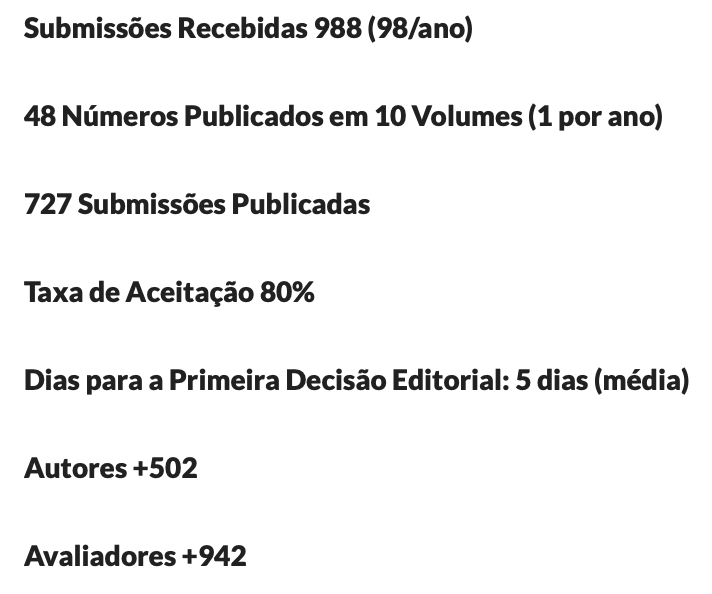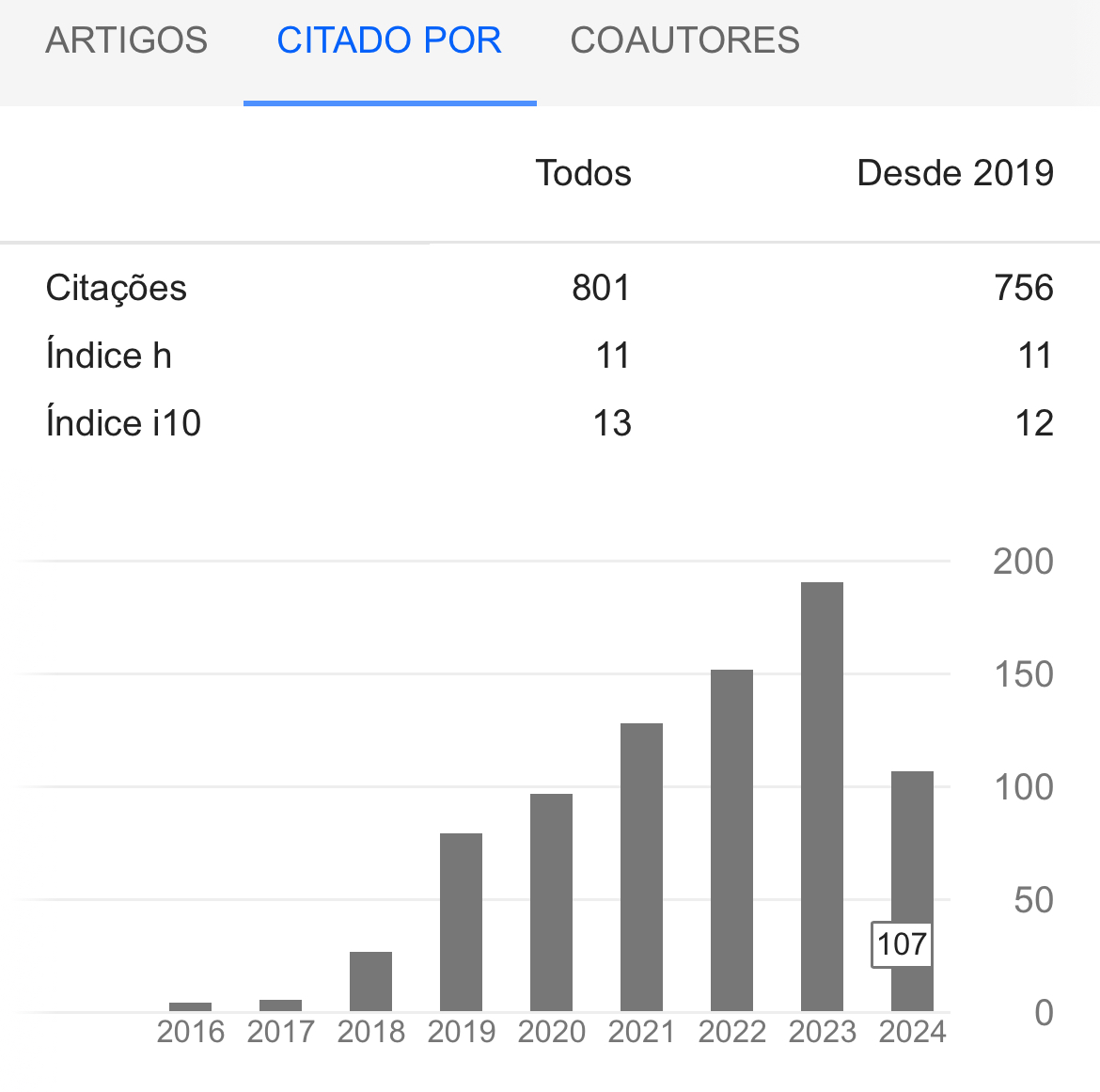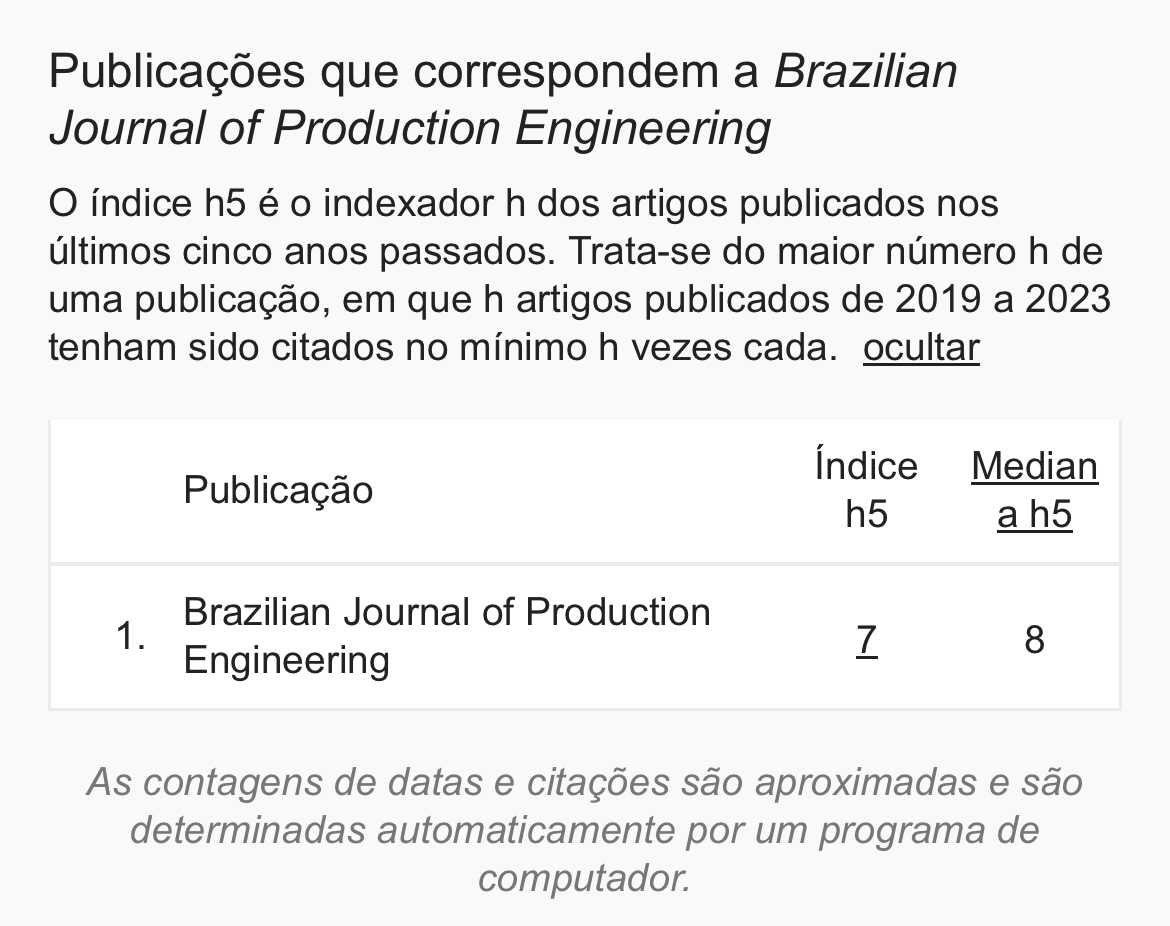Impact of the cooling system on the costs of electrical demand of a federal public university - case study of the Federal University of Espírito Santo
Keywords:
Public management; Energy efficiency; Universities; Costs;Abstract
The energy crisis, the imminence of electric power shortages and budget cuts are major threats to the functioning of several Brazilian public universities. Conservation and conscious use of electrical energy can be achieved through relatively simple actions, which do not alter the standard of comfort and routine functions. Almost half of the traditional electricity consumption of a public building is related to air conditioning systems, the study was based on data on electrical consumption and climatic information extracted from the temperature history observed in the UFES region. With such information, it was possible to determine the impact of the use of refrigeration devices on the total cost of the electrical energy consumed and to propose regulatory measures and the adoption of new refrigeration systems, in order to guarantee greater energy efficiency. The proposed model suggests a 35.47% reduction in energy consumption.
Downloads
References
AGÊNCIA NACIONAL DE ENERGIA ELÉTRICA – ANEEL (2010). Resolução Normativa nº 414, de 9 de setembro de 2010. Diário Oficial [da] República Federativa do Brasil, Brasília.
AGÊNCIA NACIONAL DE ENERGIA ELÉTRICA – ANEEL (2013). Procedimentos do programa de eficiência energética – PROPEE. Resolução Normativa nº 556. Brasília.
AGÊNCIA NACIONAL DE ENERGIA ELÉTRICA – ANEEL (2017). Resolução homologatória nº 2.118. Recuperado de: <http://www2.aneel.gov.br/aplicacoes/audiencia/arquivo/2016/028/resultado/reh 20162118ti.pdf>.
ASSOCIAÇÃO BRASILEIRA DE NORMAS TÉCNICAS – ABNT (2008). NBR 16401: Instalações de ar-condicionado - Sistemas centrais e unitários Parte 1: Projetos das instalações. Rio de Janeiro.
ASSOCIAÇÃO BRASILEIRA DE NORMAS TÉCNICAS – ABNT (2011). NBR ISSO 50001: sistemas de gestão da energia - requisitos com orientações para uso. Rio de Janeiro.
ASSOCIAÇÃO BRASILEIRA DE NORMAS TÉCNICAS – ABNT (2014). NBR ISSO 50002: diagnósticos energéticos - requisitos com orientações para uso. Rio de Janeiro.
Barros, B., Borelli, R., Gedra, R. (2015). Eficiência energética: técnicas de aproveitamento, gestão de recursos e fundamentos. 1. ed. São Paulo: Érica.
Barros, B., Borelli, R., Gedra, R. (2016). Gerenciamento de energia: ações administrativas e técnicas de uso adequado da energia elétrica. 2. ed. São Paulo: Érica.
Borba, M.; Gaspar, N. (2010). Um futuro com energia sustentável: iluminando o caminho. Rio de Janeiro: Academia Brasileira de Ciências.
Challa, M. E. R. (2009) Evaluación y propuesta de mejora de la eficiencia energética de um edificio de oficinas ubicado em Caracas, según la metodologia del centro de asesoramiento industrial. Tekhne: revista de ingeniería, pp. 45-60.
Correa, A., Taffarel, M., Ribeiro, F., & Menon, G. (2016). Análise de Eficiência: uma comparação das empresas estatais e privadas do setor de energia elétrica brasileiro. Revista Catarinense da Ciência Contábil, Florianópolis, v. 15, n.46, pp. 09-23. 2237-7662.
Du plessis, W. (2015). Energy efficiency and the law: A multidisciplinary approach. South african journal of science, Pretoria, v. 111, n. 1-2, pp. 1-8.
ELETROBRAS (2009). Pesquisa de posse de equipamentos e hábitos de uso, ano base 2005: classe residencial relatório Brasil - sumário executivo. Rio de Janeiro: ELETROBRAS; PROCEL, p.187.
EMPRESA DE PESQUISA ENERGÉTICA – EPE (2016a). Nota técnica DEA 13/15: demanda de energia 2050. Rio de Janeiro. Recuperado de: http://www.epe.gov.br/sites-pt/publicacoes-dadosabertos/publicacoes/PublicacoesArquivos/publicacao-227/topico-202/DEA%2013 15%20Demanda%20de%20Energia%202050.pdf. Acesso em: 2 jul. 2017.
EMPRESA DE PESQUISA ENERGÉTICA – EPE (2016b). Anuário estatístico de energia elétrica 2016: ano base 2015. Rio de Janeiro. Recuperado de: http://www.epe.gov.br/sites-en/publicacoes-dadosabertos/ publicacoes/PublicacoesArquivos/publicacao-160/topico 168/Anu%C3%A1rio%20Estat%C3%ADstico%20de%20Energia%20El%C3% A9trica%202016.pdf. Acesso em: 2 jul. 2017.
EMPRESA DE PESQUISA ENERGÉTICA – EPE (2017). Projeção da demanda de energia elétrica nos próximos 10 anos (2017 – 2026), série: Estudos da demanda. Rio de Janeiro.
Gonçalves, O. A. V., Gutierrez, R. H., & Santos, I. J. A. L. dos. (2017). Método para identificação dos critérios utilizados na gestão do consumo de energia elétrica: estudo de caso num instituto de pesquisa na área nuclear. Revista Latino-Americana de Inovação e Engenharia de Produção, Curitiba, v.5, n.7, pp. 116-131. 2317-4846.
INSTITUTO CAPIXABA DE PESQUISA, ASSISTÊNCIA TÉCNICA E EXTENSÃO RURAL - INCAPER (2017). Boletim Climatológico Trimestral do Espírito Santo. Vitória. Recuperado de: < https://bibliotecaruitendinha.incaper.es.gov.br/categorias-de-publicacoes/meteorologia >. Acesso em: 21 mai. 2018.
INSTITUTO NACIONAL DE EFICIÊNCIA ENERGÉTICA - INNE (2001). Protocolo internacional para Medição e Verificação de Performance. Rio de Janeiro. Recuperado de: <http://www.inee.org.br/down_loads/escos/PIMVP_2001_Portugues.pdf>. Acesso em: 19 mai. 2018.
INTERNATIONAL ENERGY AGENCY - IEA (2017). World Energy Outlook. Recuperado de: <http://www.iea.org/media/weowebsite/2017/Chap1_WEO2017.pdf> Acesso em: 18 mai. 2018.
ISO (2011). Win the energy challenge with ISO 50001. Recuperado de: https://www.iso.org/news/2011/06/Ref1434.html. Acesso em: 20 nov. 2017.
ISO SURVEY (2016). The ISO survey of management system standard certifications – 2015 - executive summary. Recuperado de: < www.iso.org/the-iso-survey.html>. Acesso em: 2 jul. 2017.
Laskurain, I., Heras-saizarbitoria, I., Casadesús, M. (2015) Fostering renewable energy sources by standards for environmental and energy management. Renewable and sustainable energy reviews, v.50, pp. 1148- 1156.
Mesquita, R., Santos, T. (2015). Estudos sobre eficiência na administração pública brasileira. Espacios, v. 36, n. 09, p. 6.
MINISTÉRIO DE MINAS E ENERGIA - MME (2017). Plano anual de aplicação de recursos do programa nacional de conservação de energia elétrica – PROCEL. GCCE. Recuperado de: http://www.mme.gov.br/documents/10584/5163596/Plano+de+Aplica %C3%A7%C3%A3o+de+Recursos+do+PROCEL+PAR+2017.pdf/3cd345eb-be0a-499b-99d3-760e0f 9334de. Acesso em: 18 mai.2018.
PORTAL DA TRANSPARÊNCIA – Ministério da Transparência e Controladoria-Geral da União (2015). Compras diretas e o órgão subordinado. Recuperado de: <http://www.portaldatransparencia.gov.br/PortalComprasDiretasOEOrgaoSubordinado.asp?Ano=2015&CodigoOS=26000>. Acesso em: 18 mai. 2018.
PROGRAD/UFES – PRÓ-REITORIA DE GRADUAÇÃO/UFES (2016). Calendário acadêmico UFES 2016. Vitória. Recuperado de: <http://prograd.ufes.br/sites/prograd.ufes.br/file s/field/anexo/calendario_academico_2016_-_atualizado_em_03-05-16.pdf>. Acesso em: 10 jun. 2018.
Rodrigues, A. G., Araújo, F. de, Presbítero, J. G. B.; Nascimento, J. C., Silva, L. C., Santos, L. C. S., Machado, R. C., Soares, T. B., & Lima Neta, R. M. L. (2017). Consumo eficiente de energia elétrica. Entre Aberta Revista de Extensão, Maceió, v.1, n.2. 2446-9769.
Santos, E. M., Farias, W. C., &Gonçalves, F. C. (2015). Uso racional de água e energia. Revista Educar, n.1, pp.10-13
Sauer, I. L. (2015). A gênese e a permanência da crise do setor elétrico no Brasil. Revista USP, São Paulo, n. 104, pp. 145-174.
UNIVERSIDADE FEDERAL DE PELOTAS – UFPEL (2018). Laboratório de conforto e eficiência energética. Programa do bom uso energético – PROBEN. Recuperado de: <https://wp.ufpel.edu.br/proben/>. Acesso em: 27 fev. 2018.
UNIVERSIDADE FEDERAL DO ESPÍRITO SANTO – UFES (2012). Centro Universitário Norte do Espírito Santo (CEUNES). Relatório de Gestão do CEUNES Exercício 2011. São Mateus.
UNIVERSIDADE FEDERAL DO ESPÍRITO SANTO – UFES (2016). A situação da UFES na atual conjuntura orçamentária. Vitória. Recuperado de: <http://ufes.br/sites/default/files/anexo/encarte_especial_-_situacao_finance ira.pdf>. Acesso em: 20 mai. 2018.
UNIVERSIDADE FEDERAL DO ESPÍRITO SANTO – UFES (2017). Centro Universitário Norte do Espírito Santo (CEUNES). Relatório de Gestão do CEUNES Exercício 2016. São Mateus.
UNIVERSIDADE FEDERAL DO ESPÍRITO SANTO – UFES (2018). Campus de São Mateus. Recuperado de: <http://www.ufes.br/campus-de-são-mateus>. Acesso em: 27 fev. 2018.
Downloads
Published
How to Cite
Issue
Section
License
Copyright (c) 2020 Brazilian Journal of Production Engineering - BJPE

This work is licensed under a Creative Commons Attribution-NonCommercial-ShareAlike 4.0 International License.











































































